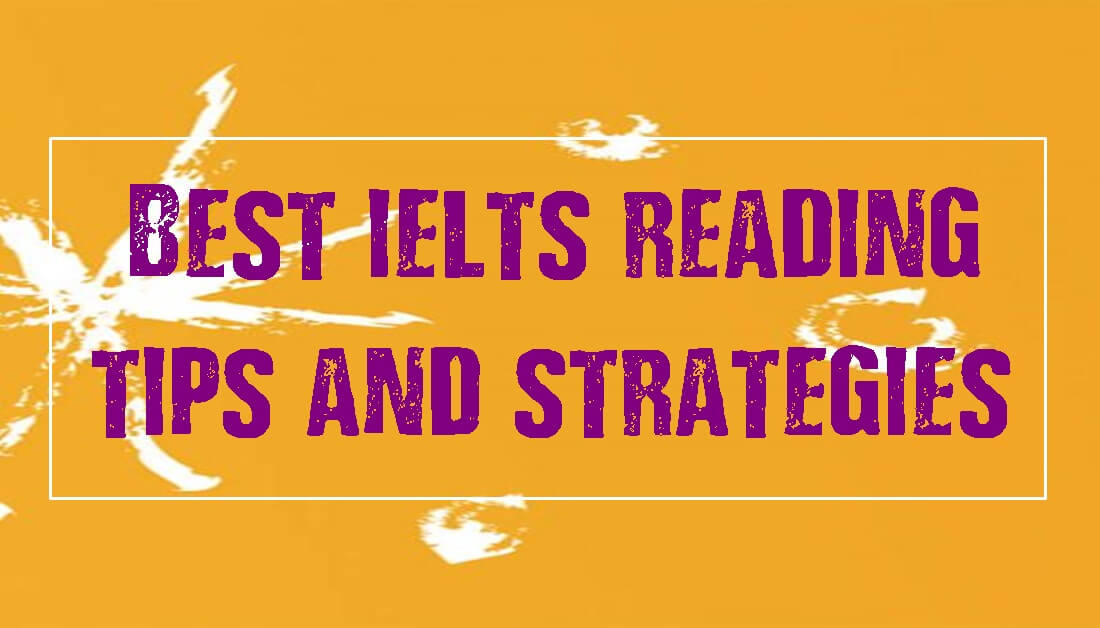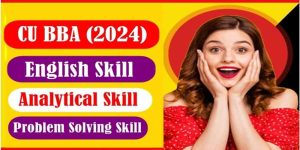- Have any questions?
- +880-1832219025
- englishrajib877@gmail.com
The Best IELTS Reading Tips and Strategies
Romancing the Sake-Land Japan
October 8, 2021Right Form of Verbs Exercise for HSC
October 10, 2021The Best IELTS Reading Tips and Strategies

The best IELTS Reading Tips and Strategies
The best IELTS Reading Tips and Strategies are mentioned here. Everyone knows the IELTS reading exam is tough. You have a very short amount of time to answer a large number of questions on very complicated texts.
You need to develop very good reading skills to get a Standard Band Score and have a range of strategies prepared in order to tackle it. Here are some tips:
1. My first IELTS reading tip is to read as much as possible.
2. Three typical sources-the National Geographic, the New Scientist, and The Economist.
3. It has only 3 passages (more difficult ones). Actually, the first passage is usually the easiest and then they become more and more difficult
4. Read the questions first and not read the whole passage.
5. Don’t read the whole passage. Train yourself to scan and notice only the important information.
6. After you go over the text for the first time, you should know what each paragraph is about, what its main idea is.
7. Watch your time closely. Don’t divide the 60 minutes you have into 3 equal parts of 20 minutes.
8. So I suggest 17 – 20 – 23, but feel free to look for any other timing that works for you.
9. Time management in the exam. Most IELTS candidates run out of time in the third reading section
10. Keep an eye on the time: it will probably seem to pass very quickly, so take care not to spend too much time on any one passage or question.
11. Start at the beginning of the test and work through it. If you cannot do a particular question, leave it and go on to the next.
12. Put a mark next to this question on the Question Paper so that you can find it again quickly.
13. Answer as many questions as you can.
14. Look carefully at the title of the passage and any subtitles and illustrations it may have. You can get a quick idea of what the passage is about from these.
15. Make sure that you read the instructions carefully in every case: many task types contain variations.
16. Pay attention to any examples that are provided.
17. Make sure that your answers keep to the word limit asked for: if you are asked for ‘NO MORE THAN THREE WORDS’,
18. Don’t waste time reading the whole passage each time for each set of questions.
19. Don’t go back to the beginning of the passage for each question when you know from the task type that the answers will come in the order of the information in the passage.
20. Don’t forget that questions can come before the reading passage as well as after.
21. Don’t worry if you don’t understand every word. It may not be necessary to understand all the words in order to answer the questions correctly.
22. Don’t forget that you must write your answers on your Answer Sheet. You will not be given extra time to do this at the end of the test.
23. Don’t write more than one answer when only one is required; even if one of your answers is correct, you will not receive a mark.
24. Remember to read all the questions very carefully.
25 Practise scanning for keywords in the extracts or the reading passage that match the items. You can also practice scanning for paraphrases of keywords.
26. Accuracy in spelling and word form.
27. Use the information provided in the notes, tables, diagrams, or flowcharts, as well as any examples.
28. Underline keywords and phrases when you read as well as paying attention to keywords in the questions.
29. Practice using synonyms, summary words, etc. to help you locate information. It is one of the most important IELTS Reading-Tips and Tricks.
30. Practise reading skills such as skimming and scanning for information.
IELTS Reading Tips for Band 9
31. You should read widely, e.g. newspapers, journals, magazines, and books, and use materials from these sources when preparing for the test.
32. You should remember that your main aim is to locate the answers to the questions.
33. You should try not to worry too much about the presence of unknown words,
34. You should remain conscious of time limits during the test.
35. Practice using paraphrases and locating paraphrases in a text.
36. You are given a text with 5 to 7 paragraph headings missing.
37. You will have between 5 and 8 minutes to do this task.
38. All the important and new information is usually given at the beginning of the article
39. Reading a newspaper or magazine this natural way can help with this.
40. It is usually best to do this one first (even if it is written after the other tasks) as it is fairly easy.
41. Read through all the paragraph headings first.
42. Start reading the first paragraph quickly.
43. You might find it useful to underline the most important information that seems to match one of the paragraph headings.
44. You need to match the meaning of the paragraph to the meaning of the whole paragraph heading.
45. Don’t spend more than a minute thinking about the ones you are not sure about now.
46. If there any you are still not sure about, you can write them with a question mark on your question sheet and circle it so you can come back and try again later if you have time.
47. Develop your ability to skim. Skimming is reading quickly by skipping over unimportant words like prepositions and ignoring difficult words that you don’t need to understand.
48. Learn to scan. Scanning is what you do when you look for a price in an advertising text or a name in a telephone book. That is looking for a piece of specific information.
49. When you can you do not actually need to read the text but move your eyes quickly over it.
50. Hey begin with the main idea somewhere near the start and develop from there, although some, frequently the first and last paragraphs of a text, are ascending – the main idea is located towards the end. This can be particularly helpful when matching headings to paragraphs.
51. Get an overview of a text before dealing with the questions. Do this by reading the title and subtitle as well as focusing on the beginnings and ends (but not JUST the first and last sentences) of paragraphs.
52. Learn to spot parallel phrases. These are different ways of expressing the same thing, such as, “I like to ski” and “skiing is enjoyable”.
Many questions, e.g. YES, NO, NOT GIVEN questions and gap fills, test your ability to match up a similar phrase in the task with its equivalent in the text.
53. Don’t panic when you encounter an unknown or difficult word. Practice trying to guess their meaning using the overall context of the text.
54. A good tip is to write them on the mark sheet in pencil as you go, correcting where necessary at the end.
55. A very strong suggestion is that you should underline words in the text in the exam.
56. One word of warning. In certain types of questions, the order of the questions is jumbled.
57. Okay, this is the general tip. Practice filling out the answer sheet before you get to the exam.
58. Learn synonyms (intelligent=smart).
59. True, False, and Not Given questions are probably the most confusing type of questions in IELTS Reading Tests.
Pay close attention to frequency words( always, often, sometimes, never, etc.).
Look for contradictions( some, all, never, usually, etc.).
Pay close attention to negative words(hardly, never, rarely, seldom, etc.)
60. Read quickly. The more variety, the better. (science, commerce, and arts topics)
61. No shortcuts or secret techniques. We must require time, practice, and persistence because reading is a skill that can not be developed within a short period of time like speaking and listening.
62. The only bad piece of advice is the one that tells you you must do it their way. Ignore them. The only right way is the way that works.





